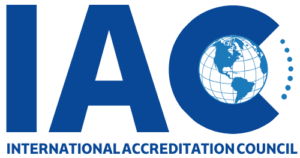ISO 22000
ISO 22000 is an international standard that specifies requirements for a Food Safety Management System (FSMS). The full title of the standard is ISO 22000:2018, “Food safety management systems — Requirements for any organization in the food chain.”
Key elements and requirements of ISO 22000 include:
Scope: ISO 22000 is applicable to any organization, regardless of size or complexity, involved in the food chain. This includes food producers, processors, manufacturers, retailers, and service providers.
Interactive Communication: The standard emphasizes the importance of effective communication throughout the food chain to ensure that all relevant information related to food safety is conveyed to those who need it.
System Management: ISO 22000 follows a Plan-Do-Check-Act (PDCA) approach, similar to other management system standards. This includes planning and implementing the FSMS, monitoring and evaluating its performance, and taking corrective and preventive actions as necessary.
Hazard Analysis: Organizations are required to conduct a hazard analysis to identify and assess potential hazards in the food chain. This includes biological, chemical, and physical hazards, as well as hazards related to food fraud.
Prerequisite Programs: ISO 22000 outlines the need for prerequisite programs (PRPs) to create a hygienic environment in the food chain. PRPs are general measures that address the basic conditions and activities necessary to maintain a hygienic environment.
HACCP Principles: The standard incorporates Hazard Analysis and Critical Control Points (HACCP) principles, which involve identifying critical control points in the food production process and implementing measures to control and monitor these points.
Verification and Validation: ISO 22000 requires organizations to verify and validate the effectiveness of the FSMS through activities such as internal audits, monitoring, and validation of control measures.
Traceability and Product Withdrawal: Organizations must establish and maintain procedures for traceability and product withdrawal in the event of a food safety issue.
ISO 22000 is designed to be compatible with other management system standards, such as ISO 9001 (Quality Management) and ISO 14001 (Environmental Management). It is a widely recognized standard that helps organizations ensure the safety of their food products, comply with legal requirements, and build trust with customers and stakeholders.
Organizations seeking ISO 22000 certification undergo an assessment by accredited certification bodies to ensure compliance with the standard’s requirements. Certification to ISO 22000 demonstrates a commitment to food safety and provides a competitive advantage in the food industry.
